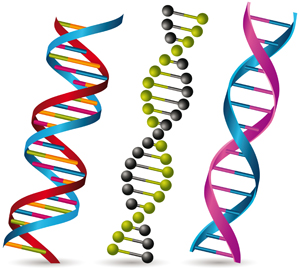Researchers at the Peter Munk Cardiac Centre (PMCC) have discovered a protein switch which can trigger a cascade of events leading to heart failure, pointing to a new direction for drug development.
 "Our research suggests that PINK1 is an important switch that sets off a cascade of events affecting heart cell metabolism," says Dr. Phyllis Billia, principal author, clinician-scientist and heart failure specialist at PMCC. "This could be one of the inciting events in the development of heart failure."
"Our research suggests that PINK1 is an important switch that sets off a cascade of events affecting heart cell metabolism," says Dr. Phyllis Billia, principal author, clinician-scientist and heart failure specialist at PMCC. "This could be one of the inciting events in the development of heart failure."
The findings, published today in Proceedings of the National Academy of Sciences, show that the absence of a certain protein, PINK1, causes heart cells to produce less energy. This lack of energy causes some heart cells to die, forcing the remaining cells to work harder to keep the heart going. In response to this stress, the heart muscle cells thicken, a condition known as hypertrophy.
Heart failure is the most common cause of hospitalization in North American adults, and over 50,000 are treated for advanced heart failure annually. Transplantation is the only long-term treatment for end-stage heart failure patients and the long wait-times for a matching donor organ make it necessary to find other alternatives.
"Heart failure remains a silent epidemic in North America, except for those who suffer from this devastating disease. Current therapies, while effective, only target the symptoms of heart failure," says Dr. Vivek Rao, co-author of the study and Surgical Director of the Heart Transplant Program at PMCC. "The discovery of PINK1's role in the development of heart failure may lead to novel treatment to prevent heart failure in those at risk. This discovery represents a novel and as yet, untapped mechanism to fight the battle against heart failure."
Until now, research into the PINK1 gene has focused on its links to early-onset Parkinson's disease and certain cancers including esophageal and endometrial. This is the first study to establish its connection to heart disease.
While more research is required to develop potential clinical treatments, this discovery represents a new way of thinking about the involvement of certain proteins in the progression of heart failure.
"We need to learn more about PINK1 and the other proteins it interacts with at the sub-cellular level," says Dr. Billia. "But if we've identified the inciting event that causes the chain of events leading to failure, research and drug development strategies should be focused in this new area of science."
Dr. Billia conducted this research in the cell metabolism laboratory of Dr. Tak Mak, Director of the Campbell Family Institute for Breast Cancer Research at PMK. Dr. Mak is internationally renowned for his important breakthroughs in immunology and our understanding of cancer at the molecular level.
The research published today was financially supported by grants from the Canadian Institutes of Health Research.
